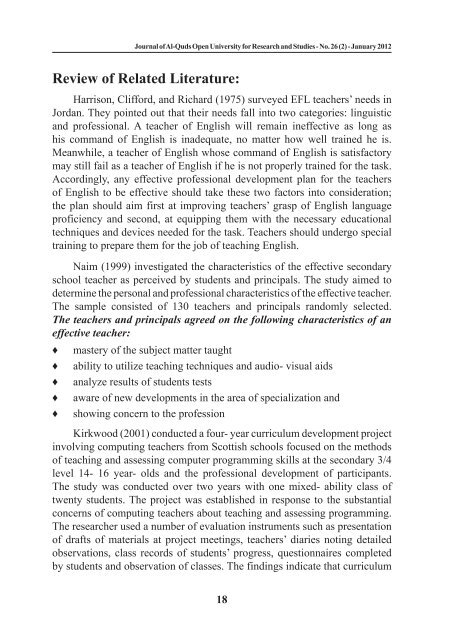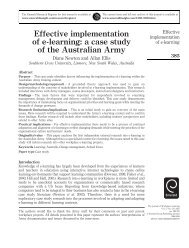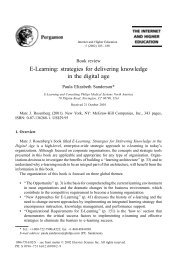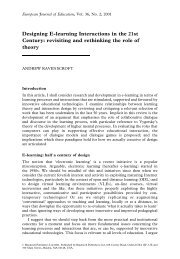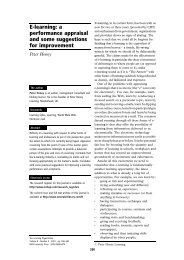Ùسخة pdf - جا٠عة اÙÙدس اÙÙ ÙتÙØØ©
Ùسخة pdf - جا٠عة اÙÙدس اÙÙ ÙتÙØØ©
Ùسخة pdf - جا٠عة اÙÙدس اÙÙ ÙتÙØØ©
You also want an ePaper? Increase the reach of your titles
YUMPU automatically turns print PDFs into web optimized ePapers that Google loves.
Journal of Al-Quds Open University for Research and Studies - No. 26 (2) - January 2012<br />
Review of Related Literature:<br />
Harrison, Clifford, and Richard (1975) surveyed EFL teachers’ needs in<br />
Jordan. They pointed out that their needs fall into two categories: linguistic<br />
and professional. A teacher of English will remain ineffective as long as<br />
his command of English is inadequate, no matter how well trained he is.<br />
Meanwhile, a teacher of English whose command of English is satisfactory<br />
may still fail as a teacher of English if he is not properly trained for the task.<br />
Accordingly, any effective professional development plan for the teachers<br />
of English to be effective should take these two factors into consideration;<br />
the plan should aim first at improving teachers’ grasp of English language<br />
proficiency and second, at equipping them with the necessary educational<br />
techniques and devices needed for the task. Teachers should undergo special<br />
training to prepare them for the job of teaching English.<br />
Naim (1999) investigated the characteristics of the effective secondary<br />
school teacher as perceived by students and principals. The study aimed to<br />
determine the personal and professional characteristics of the effective teacher.<br />
The sample consisted of 130 teachers and principals randomly selected.<br />
The teachers and principals agreed on the following characteristics of an<br />
effective teacher:<br />
♦ mastery of the subject matter taught<br />
♦ ability to utilize teaching techniques and audio- visual aids<br />
♦ analyze results of students tests<br />
♦ aware of new developments in the area of specialization and<br />
♦ showing concern to the profession<br />
Kirkwood (2001) conducted a four- year curriculum development project<br />
involving computing teachers from Scottish schools focused on the methods<br />
of teaching and assessing computer programming skills at the secondary 3/4<br />
level 14- 16 year- olds and the professional development of participants.<br />
The study was conducted over two years with one mixed- ability class of<br />
twenty students. The project was established in response to the substantial<br />
concerns of computing teachers about teaching and assessing programming.<br />
The researcher used a number of evaluation instruments such as presentation<br />
of drafts of materials at project meetings, teachers’ diaries noting detailed<br />
observations, class records of students’ progress, questionnaires completed<br />
by students and observation of classes. The findings indicate that curriculum<br />
18


